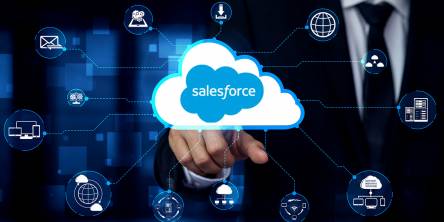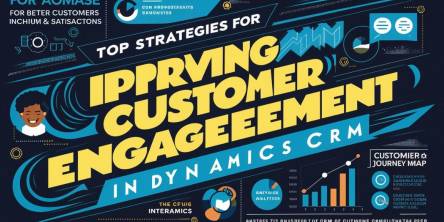The Best Java E-commerce Frameworks and CMS

Do you know what the following e-commerce companies have in common: Amazon, Walmart, eBay, and more? All of these e-commerce companies' apps make use of Java. Java is decidedly among the leading choices of programming language for e-commerce applications because it offers a world of benefits; for example, since Java code can be run on any platform with a Java Virtual Machine (JVM), users of e-commerce apps made with Java can access the said apps on a variety of devices. It has emerged as a versatile & robust programming language that empowers businesses to create powerful and scalable online platforms. Then there is also the inherent security that comes with using Java —a secure language with built-in features to safeguard data and sensitive information against common security threats, making Java a good choice for e-commerce applications that handle sensitive data, such as passwords and credit card numbers.
These are, of course, only a few examples of Java's many leading benefits, making it a terrific choice for a broad range of e-commerce use cases. Java frameworks and Content Management Systems (CMS) are indispensable tools for developers and online retailers. They offer a plethora of features & functionalities to enhance the e-commerce experience.
This blog will allow me to explore some of the most popular Java frameworks and CMS solutions tailored for eCommerce to make informed decisions.
Top Frameworks And CMS For E-commerce
Now, if you too are ready to jump on the Java for e-commerce train, here are some of the top frameworks and CMS you may want to keep in mind:
- Hybris: Now known as SAP Customer Experience, it is a comprehensive e-commerce platform offering various features, such as catalog management, product management, marketing, order management, etc. This robust and highly scalable e-commerce platform has been designed to handle high traffic volumes and complicated business logic. This is why Hybris is so well suited for big online retail operators.
- Broadleaf: An open-source e-commerce framework engineered to be scalable and flexible, Broadleaf makes for an excellent choice for companies that want to customize their e-commerce platform. In addition to the plethora of customization options, Broadleaf Commerce also offers flexibility and extensibility. Broadleaf's modular architecture enables developers to tailor the e-commerce app to suit companies' unique business needs. It also provides support for product catalogs, pricing rules, multiple stores, built-in content management capabilities, various payment gateways, and SEO features.
- Magnolia: A content management system (CMS) written in Java; more often than not, Magnolia is used for developing content-rich and customer-centric e-commerce websites. What is genuinely most interesting about this content management system is that it can also be integrated with e-commerce platforms to help effectively manage marketing campaigns, customer experiences, and content. If you are a business that needs to be able to create and update its website content easily, Magnolia is the right choice for you.
- Alfresco: Alfresco, a Java enterprise content management system (ECM), is usually used to store manage, and deliver content to end users. We will be honest — this one has not been designed for e-commerce; Alfresco can be used with e-commerce platforms to handle content management needs. Another reason Alfresco stands out is that it can manage images, videos, documents, and other similar media assets.
There you have it, folks; Java, thanks to its robustness and unmatched versatility, has solidified its position as the preferred choice for companies that run e-commerce platforms. With features such as platform independence, scalability, and extensive ecosystem on offer, you too ought to seek to harness the reliable and high-performance potential of Java application development services, making them a strategic imperative for e-commerce companies.
Similar Articles
Corporate transparency is essential in building stakeholder trust and credibility in today's evolving business environment. As businesses grow and adapt to changing regulations, ensuring adherence to rules and maintaining records has become increasingly intricate.
Among the solutions developed over the past few decades, Salesforce Financial Services Cloud (FSC) has emerged as the definitive choice for gaining flexibility, visibility, and long-lasting, inclusive growth in the financial sector.
Open source software (OSS) is distributed with its source code, which means it can be distributed, modified, and used freely with the original rights. Most users never see the source code, a critical part of the software.
It's one of the keystones, basic but key in the successful highly competitive modern business environment, where the connection with the customer is a must.
The speed of progress in the modern business landscape is quite relentless. For small-scale companies, this implies that keeping up with this progress is not simply gainful but fundamentally significant for their survival. And what does success in such an environment demand?
The finance sector needs to battle many difficulties in the modern and quick-moving digital landscape. Be it exploring the unpredictable snare of official guidelines or overseeing tremendous volumes of data - - financial establishments are feeling the pressure to succeed. This demanding environment, in turn, often leads to exhausted teams, costly manual errors, and inefficiencies that can be chalked up to repetitive tasks
The manufacturing industry, vital to the world economy, is at a pivotal intersection. I mean that, yet again, changes are afoot in the sector, this time driven by digital transformation as it represents a profound change in the very essence of how manufacturers operate, think, and drive innovation.
Technology helps make things easier and faster. Digitization is one of the aspects of technology that has changed how we live and work. It has brought many benefits for businesses, especially the travel industry. Customers can search online for the schemes offered and easily book trips, but payments need to be completed with ease.
In an article published by The Economist in 2017, while describing the astounding growth of titan companies like Google, Apple, Facebook, and Microsoft, it was mentioned how data had become “the oil of the digital era.”









